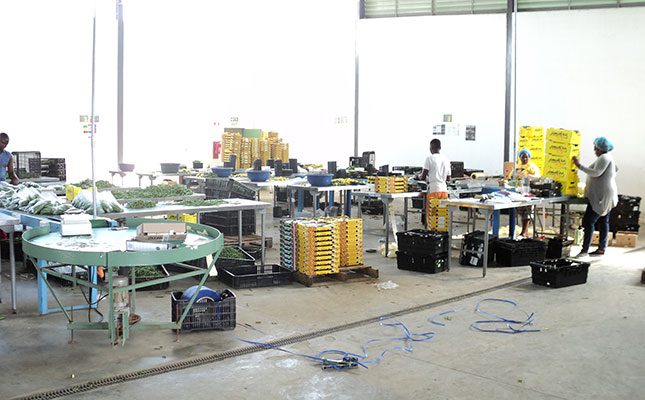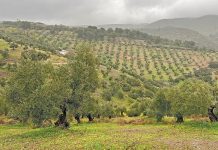
Photo: Lindi Botha
On Tuesday, the Competition Commission released its Fresh Produce Market Inquiry (FPMI) provisional report on the state of the fresh produce industry.
The purpose is to examine whether any features in the fresh produce value chain impede, restrict, or distort competition in the market. It also assessed the level and extent of historically disadvantaged persons and small-scale producers in various markets.
Among the findings are:
- National Fresh Produce Markets (NFPM) were being mismanaged and that funds, although available, were not being used to maintain market infrastructure.
- HDPs were not being discriminated against or prevented from entering the market.
- Lack of infrastructure (roads, access to power during load shedding) in rural areas was one of the biggest reasons new entrants to farming and small-scale producers failed.
- Health and safety compliance costs were too high, keeping small-scale producers out of the market.
- Prices in supermarkets were not transparent since produce is often priced per unit, not per kilograms, making comparisons between retailers difficult.
During a media briefing, the FPMI, however, skimmed over crucial details that revealed the true state of South Africa’s fresh produce industry, instead pointing a finger at a lack of supermarket competition as the reason fresh produce prices were ostensibly high.
READ Are national fresh produce markets coming to an end?
Deputy commissioner of the Competition Commission, Hardin Ratshisusu, said that there were instances of very high mark-ups on fresh produce in retail, which was sustained over long periods, and was indicative of a lack of competition in the market.
The report, therefore, calls for retail property associations to commit to allocating a minimum amount of space for emerging retailers or SMMEs in shopping centres to broaden the competition between supermarkets.
The FPMI, however, neglected to take into account that supermarkets only make up a fraction of fresh produce sales outlets in South Africa. Tommie van Zyl, CEO of ZZ2, which is the largest tomato producer in South Africa, pointed out that less than 15% of their tomatoes are sold in supermarkets, with the rest being sold by hawkers.
The FPMI found that less than 1% of gross value of sales in NFPMs came from small holders. They recommended that all NFPMs set targets to increase annual sales of small-scale and HDP farmers through NFPMs by 10% per annum.
The FPMI also called for mandatory procurement from small-scale and HDP farmers and mandatory allocation of business to HDP market agents to solve the low level of transformation.
READ Eskom’s latest plan to load farmers’ power bills slammed
The FPMI showed that the state of NFPM infrastructure is concerning. Ratshisusu, however, said that the markets generated enough revenue to sustain themselves, but that profits generated are not ring-fenced to cater for current and future capital expenditures.
Looking at the different management models, the report shows that the Cape Town NFPM, which uses a public-private partnership model, is the only functioning market without any infrastructure and maintenance issues.
Yet the FPMI proposed that the Joburg market’s model of having a state-owned company in charge of running the market be used across all markets. This is despite the fact that the FPMI acknowledges that the Joburg market is dilapidated and mismanaged.
Van Zyl told Farmer’s Weekly that the inquiry’s recommendations push an agenda of centralised control, entirely denying the power and necessity of a free market system.
“More control over who may sell produce, to whom they may sell and at what price will not aid food security or transformation.”
He said that if more small-scale farmers were to survive and thrive, government needed to make the business environment as conducive to success as possible.
This meant addressing high levels of crime, ensuring roads to market were drivable, and that farmers had the electricity they needed to produce food. These sentiments were echoed by small- scale farmers interviewed as part of the inquiry and included in the full report.
Farmer’s Weekly will be providing on going coverage on the FPMI online and in our print editions as industry stakeholders unpack the findings of the report.












